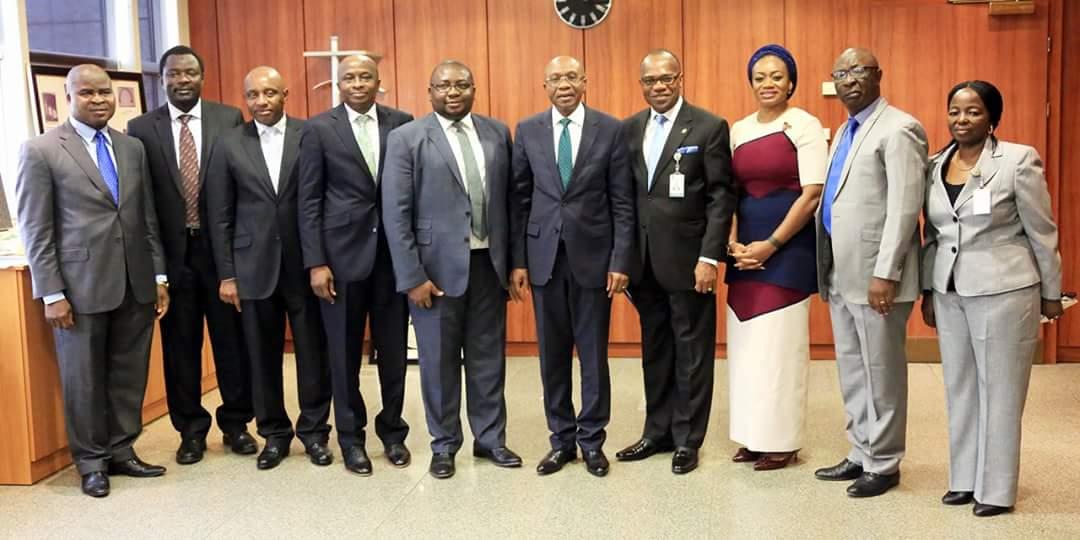Zenith Bank Plc weekend notified all its customers on the flag off of weekly deductions of cumulative sums of N50 Stamp Duty paid per transaction both e-transactions and over the counter deals.
Business Hilights recalls that banks had been under serious pressure from the federal Government through the Federal Inland Revenue Service (FIRS) to begin the deductions since last year, but the rejection of the Bill for assent by President Muhammadu Buhari delayed it.
However, in a memo to all Zenith Bank customers, the bank said in parts: “Dear valued customers, ‘Re: N50.00 Stamp Duty Charge on Eligible Transactions’.
“Please be informed of the following with respect to Stamp Duty Charge:
(1), A stamp duty charge of N50.00 per transaction is applies to all transfers and deposits of N1,000 and above received into eligible accounts. (Saving account and Intra-account transfers are excluded).
(2), The aggregate amount of stamp duty charges deducted from eligible accounts weekly are debited every Friday into the customer’s account and notifications sent accordingly”.
Business Hilights gathered that due to the persistent pressure from the FIRS on the matter, other banks have issued similar notices to their customers.
It was not clear if the notice to bank customers followed fresh directive from the Central Bank of Nigeria (CBN) based on any presidential assent on the earlier rejected Bill.
Business Hilights recalls that the Senate had at its plenary session of Tuesday, 8 May 2018, passed the Stamp Duties Act, 2004, (Amendment) Bill, 2018 (HB 889). The Bill seeks to address ambiguities in the Principal Act and to ensure that the provisions of the Principal Act reflect current realities in Nigeria. The Act makes provisions for the payment of taxes and levies to the government on financial transactions, documents and legal instruments.
Presenting the report on the Bill, the Deputy Chairman of the Committee on Finance, Sen. Umaru Kurfi (APC; Katsina) stated that the Committee had conducted an interactive session on Tuesday, 30 January 2018 with various stakeholders such as the Post Master General of the Federation, Nigeria Postal Service (NIPOST), Executive Chairman of the Federal Inland Revenue Service (FIRS) and the Ministry of Finance on the proposed amendments.
Senator Kurfi mentioned the Committee observations among others that: The Stamp Duties Act which was enacted in 1939 is obsolete; The Bill expands the definition of “Stamp” to include electronically generated stamps or stamps embossed through a point of sale (POS) machine or an adhesive postage stamp with face value or specified value; The Bill includes receipts issued in respect of deposits made into a bank as instruments for which stamp duty can be imposed; and
The Bill provides an enabling environment for NIPOST to measure up with postal administration to meet international best practices.
The Katsina lawmaker further averred that the Bill, if passed, would boost revenue generation leading to an improved economic growth. He stated that the Committee retained all 8 Clauses passed by the House of Representatives. According to him, the Stamp Duties Act (Amendment) Bill, 2018 was passed by the House of Representatives on 30 November 2017 and transmitted to the Senate for concurrence. The Bill was then referred to the Committee on Finance for further legislative scrutiny on Thursday, 18 January 2018 to aid the Senate arrive at a decision on the passage of the Bill.
The idea to send the bill to the National Assembly was the government reaction to the Court of Appeal ruling rejecting the tax.
Nigeria Employers Consultative Association (NECA), umbrella body for employers in the country, had after the Appeal Court ruling berated CBN, over its failure to comply with the Court of Appeal’s ruling directing all Deposit Money Banks, to discontinue the illegal charging of N50 per transaction in lieu of Stamp Duties.
It will be recalled that the Court of Appeal sitting in Lagos on April 21, 2016, ruled against the imposition of stamp duties on bank lodgements with value of N1,000 and above. The Federal Government had planned to raise about N2.5 trillion per annum from the duty. Ruling on an appeal filed by Standard Chartered Bank against Kasmal International Services Limited and 22 others, Justice Ibrahim Saulawa and four other Justices of the Court of Appeal sitting in Lagos, held that the Stamp Duties Act, 2004 did not impose a duty on Deposit Money Banks to deduct N50 on deposits.
The CBN had, in a circular issued to the DMBs, directed them to deduct N50 for stamp duties on every deposit into a current account of N1,000 and above from January 1, 2016. The circular, which has since been implemented by the banks, came despite the pendency of issue in the court. Furthermore, even after the Court of Appeal order to DMBs to discontinue the stamp duty charge, the banks have continued debiting customers’ accounts on stamp duty.
NECA and the Organised Private Sector, OPS, had opposed attempts by the Nigeria Postal Service, NIPOST, to compel companies to affix a N50 postal stamp on all receipts, invoices and documents evidencing transaction of N1, 000 and above.
NECA, in a statement in Lagos by its Director General, Mr. Segun Oshinowo, said that “There had been a landmark ruling in the case at the Court of Appeal on this subject matter between Kasmal International Services Limited and Access Bank and 23 others, which declared the deductions illegal.
“NECA has expressed grave concern over the failure of the Central Bank of Nigeria, CBN, to reverse its earlier directives to all DMBs to halt the charging of N50 per eligible transaction in accordance with the assumed provisions of the Stamp Duties Act and Federal Government Financial Regulations (2009). The CBN is hereby, advised to do the needful without delay by directing cessation of further deductions and commence the refund of all accrued deductions in the past to their customers.
“NECA urges the Buhari administration to restrain its operatives from pursuing policies that will increase the burden on the citizenry both corporate and individuals. Stamp Duty’s applicability is limited to purchases involving large sums like a house purchase or importation of goods as against the position of applying N50 postage stamp to all receipts given by any bank (or financial institution) in acknowledgement of services rendered in respect of electronic transfer and teller deposits.”









